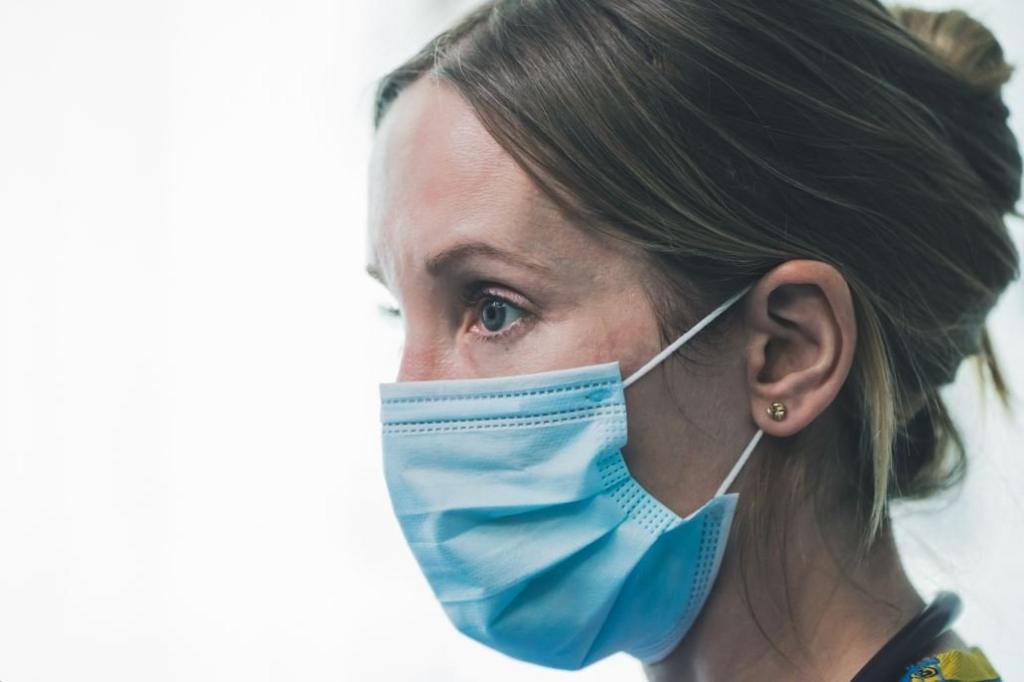Oxfordshire doctor's book about Covid becomes TV drama
- Published

Breathtaking is an ITV series and stars Joanne Froggatt
A doctor whose book about working during the pandemic has become a TV drama said she hopes it will "stop the public in their tracks".
Dr Rachel Clarke, a palliative care doctor from Didcot in Oxfordshire, worked at the Horton and John Radcliffe Hospitals.
She wrote about what she went through in her book Breathtaking - now a three-part ITV series.
Dr Clarke said she wanted viewers to really empathise with staff.

Dr Clarke started writing to help process her feelings
Dr Clarke said she started writing about things that were worrying her, in an attempt to process them, and later began documenting her day-to-day life on the Covid-19 wards.
She said even though it was the most "intense, traumatic, overwhelming experience" she had ever known in 15 years of working as a doctor, it could still be hard to believe.
"It felt as though the only way really to grasp it," she said, "would be to almost take the viewer by the hand and take them into this world and all of the sights and sounds and emotions that took place in this extraordinarily alien environment because otherwise it's so hard to grasp".
Discussions began about the TV series in January 2021 when she met with her co-writers: Line of Duty's Jed Mercurio and Prasanna Puwanarajah - both former doctors.
It was commissioned by the same TV executive as Mr Bates vs The Post Office, and Dr Clarke hopes it will have a similar impact.
"It's very easy to forget and want to move on from a pandemic, it was a traumatic time for all of us," she said.
"But I think if we do that, firstly we might be doing a disservice to all the NHS staff who risked their lives to help patients... and also of course there are over 230,000 in the UK who lost their lives to Covid.
"I think that memorialising that, recognising the enormity of that loss, is a really important thing to do."
Viewers have given their reaction to the series on social media and many NHS staff have told their own stories.
Allow X content?
This article contains content provided by X. We ask for your permission before anything is loaded, as they may be using cookies and other technologies. You may want to read X’s cookie policy, external and privacy policy, external before accepting. To view this content choose ‘accept and continue’.
According to Dr Clarke, there was a principle throughout filming that everything on screen had to have really happened to either patients or staff.
"So you've got the scuffs on the walls, the stains on the ceilings," she said. "This is not sanitised, this is the NHS as it really is."

Follow BBC South on Facebook, external, X, external, or Instagram, external. Send your story ideas to south.newsonline@bbc.co.uk, external.